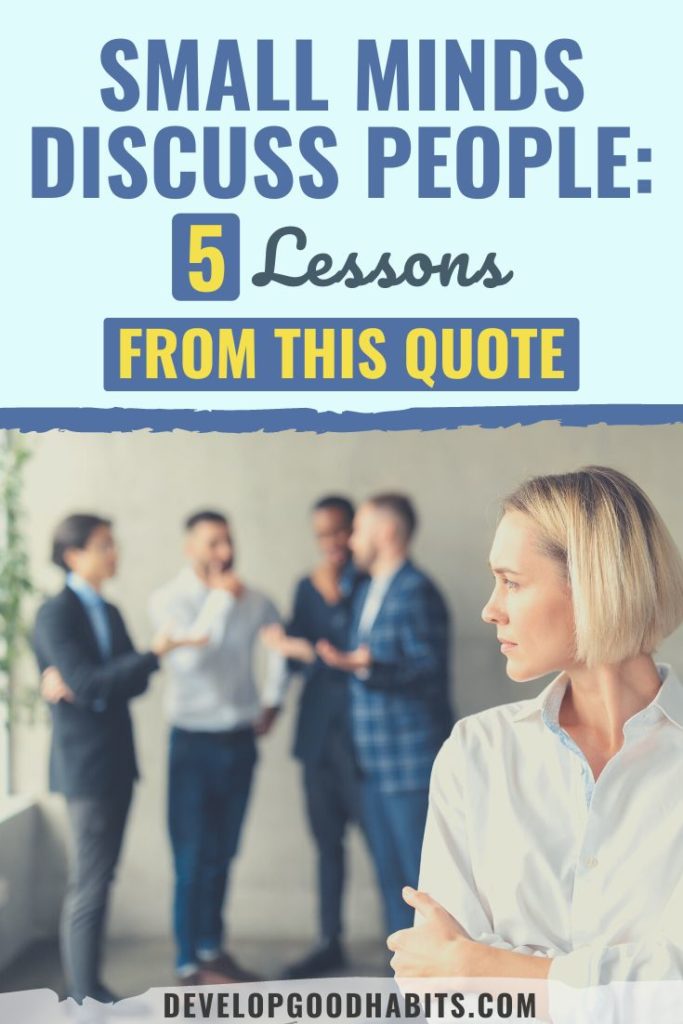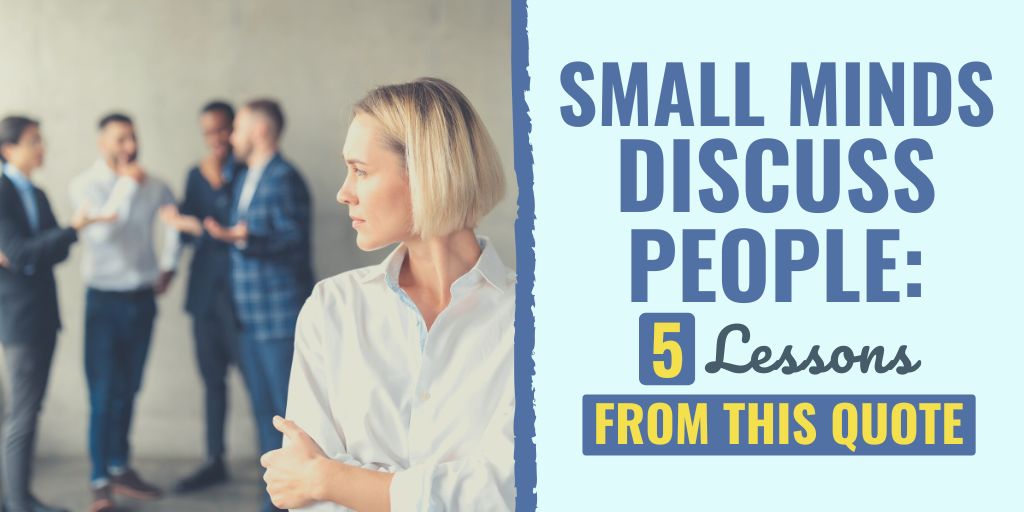Think for a second about how many conversations you have every day. Whether it’s a professional exchange with someone at work or you’re making small talk with someone on the subway, it’s hard to go a day without having a conversation.
In fact, one study found that the average person has 27 conversations per day, with each one lasting about 10 minutes. Conversing with others is probably the most common bonding ritual that people use, and we do this to manage the interpersonal distance between ourselves and other people. Whether you’re with friends, family, or coworkers, having discussions with people helps define or create new relationships.
But what subjects do you approach when engaging in this bonding activity?
An initial google search of, “What do people talk about?” reveals the following:
“Most people enjoy talking about their hobbies, themselves, their thoughts, or their experiences.”
In short, people discuss whatever is useful or relevant for them at the time–and what is useful for you depends on your knowledge, skills, and abilities.
Consider the following quote:
“Great minds discuss ideas. Average minds discuss events. Small minds discuss people.”
In this article, we are going to break down this quote and then look at 5 lessons you can take away from these famous words. But first, let’s look at this quote’s background.
Background
This quote is commonly attributed to social activist, diplomat, and longest-serving former first lady, Eleanor Roosevelt; however, similar statements have been ascribed to people and theologists much earlier in history.
The remark has evolved throughout decades of circulation and several reassignments to a variety of people, but no matter which version of this quote you come across, the significance and meaning remain the same.
Many believe the quote originated with Charles Stewart in the 1900’s. While there was still much to be learned about how the brain worked back then, Stewart studied people’s conversations and recognized over time that it was easier to talk about people than to have more meaningful or complex conversations about ideas.
He noted that, unlike small minds, medium minds have enough intelligence and ability to reflect and talk about events. What’s more, great minds didn't waste time with menial topics such as people or events because they were believed to be too intellectually mature for such things. Rather, they discussed ideas, challenged the status quo, and created new policies to lead others.
Ultimately, both Roosevelt and Stewart believed that anyone could have a great mind, and therefore encouraged people to focus their topics of conversation on ideas instead of people or events. While the science behind the brain was yet to be understood, those credited with this quote were trying to encourage others to be more curious about the world around them.
Now, let’s take a look at the significance of the three sections of this quote: ideas, events, and people.
Ideas
In order to discuss abstract and unfamiliar ideas, one must be able to be open minded enough to explore potential truths that are outside of their current awareness. In order to see beyond any information that has already been provided, one must have an understanding of current events, human behavior, and cause and effect.

Research has shown that socially competent people who have a high EQ are more prepared to learn and contribute new ideas to create a safer and better future. This population also tends to be healthier and happier than those who haven’t developed these skills.
Some things to consider when attempting to look beyond the facts that are immediately available include:
It is posited in this quote that it would take too much mental effort for small minds to perform the complex task of analyzing the happenings of the world. It’s suggested that those with small minds are unable to dig deeper, understand root causes, question reality, and identify solutions–but those with great minds are able to discuss these topics because they have the capacity to take on these mental tasks. They’re able to take the “what?” and turn it into “now what?”
Events
It requires a certain amount of knowledge and intelligence to reflect upon current events or even know what is going on in the world around you. If you’re able to talk about things, you must have done enough research or gathered enough information to know at least a little about them.
But without taking the next step of discussing the possible implications of current events or how certain aspects of life potentially came about or could have been different, one is limiting their discussion to the objective facts of life (the “what”) without talking about the subjective “why” or “how”.
So, what does this mean?
While you might think you’re being educated by simply watching the news, you’re really being conditioned–especially if you’re not taking the time to investigate what you hear further to form your own conclusions.
News is heavily censored, regardless of the source. Whether it’s being controlled by the government or the publication source, information that is furnished to the public is always limited to what the speaker wants people to hear. Furthermore, news sources can govern the comments that are available to readers and even adjust statistics to misrepresent the truth.
News sources sensationalize and monitor their content, often to increase the shock value or sway people’s opinions. So while people may believe they’re being educated through news sources, they’re often missing the big picture and actually adopting a skewed image of the world without taking that extra step of discussing ideas surrounding what they can do to prevent or solve the issues at hand.
People
In this quote, discussing “people” refers to gossiping or speaking negatively about others. Anyone can talk about people–and this is often a gratifying subject for those who haven’t developed the social-emotional skills that more educated people have. The small minded or uneducated person views the world in a very personal way—only being familiar with his own experiences and what people tell him, making it easy to talk about other people.
People who have low emotional intelligence also have fewer social skills, which can negatively impact their feelings of self-confidence, leading to behaviors that temporarily provide personal gratification, such as putting other people down.
People are quick to criticize others–even people who have been successful (like politicians who make personal attacks in their campaigns). In everyday life, it’s common to see people shaming each other online with onlookers joining in, rather than taking the high road.
Discussing celebrities is another way that people often talk about other people. This is an easy topic because our population is largely familiar with mainstream celebrities who live in the public eye in some way. But again, research has found that there is a direct relationship between how interested one is in celebrities’ lives and poor performance on cognitive tests.
This suggests that people who are more likely to talk about celebrities are also less intelligent than those who have other primary interests. And while having role models is a good thing, it’s key to have other interests in life as well.
This quote is a generalization, as people often discuss other people and events to help understand each other, increase awareness, and learn about the world. The issue comes when the discussion of people or events ends without any evaluation or interpretation. When we talk about people or events reactively, it doesn’t help us grow, as simply complaining about people/events ultimately has no impact on our lives or the world.
But once you focus on ideas for change–and then act on them–a difference can be made. But this requires a mind that has the capacity to process complex and original ideas.
So now that we know the significance of this quote, how can it be applied to our lives?
5 Lessons to Take Away From This Quote
1. Interpret What You Hear
To go from having a small mind to a great mind, remember to always dig deeper to analyze what could be lying beneath the surface of the information at hand.
Don’t blindly believe everything you hear or limit yourself to what is on the news. If you hear about an event from one news source, do some research to hear other people’s views on the event so you can generate your own opinion or conclusion.
2. Consult a Variety of Sources
There is all kinds of information and events that don't make it onto the news that may be significant in some way. Expand your sources to soak in a wide variety of information from different places to increase and diversify your awareness.

Once you do this, you’ll realize the narrow scope of any single news source and the importance of widening your net to be able to absorb diverse information from a wide array of places so you can then make your own conclusions.
3. Avoid Gossip
You probably hear people gossip all the time, but that doesn’t mean you need to engage in it. Instead, think about what you can do to help other people if they’re struggling. When you’re talking about people, make sure it’s positive or uplifting.
When you gossip, you're letting your audience know that you can’t be trusted and that you’re willing to disclose other people’s personal information. It also displays a sense of insecurity. If you don’t like the way someone acted or handled a situation, focus on the issue (the why or how) instead of your complaint (the what). You can offer constructive criticism without attacking one’s character or actions.
4. Seek New Knowledge
Be proactive about your learning by reading news or updates from people you respect. This will help you learn from people with esteemed ideas or methods of thinking. Save thought-provoking articles and avoid ingesting information from any single news source that can create a skewed perception of the world.
Be a lifelong learner and be proactive about understanding world issues. According to the Nautilus Institute for Security and Sustainability, global issues are those that could impact everyone in the world. While some issues may not directly affect you, by seeking new knowledge, you can draw links between your own actions and larger global issues.
That said, the solutions to global issues require everyone to do their part to create meaningful change to the status quo, because by definition, they pose a universal risk. We must consider life beyond ourselves and learn about worldwide issues we are facing because the world is ultimately ours to protect and take care of.
5. Ask Why?
Seek to understand people and events. Why do things happen? How did they start? How can the future be impacted? For example, instead of just being horrified by a recent news event, think about why it happened and what you could do to affect the future.
Don’t simply be reactive to any information you gather, be proactive in your future approach by learning more about the causes, and seek to understand patterns and rationales so you can focus on ideas and solutions. Once you understand why something happened, you can move on to consider how you can make an impact.
Final Thoughts on Lessons From This Quote
Upon reflection, what do you believe you talk about the most? Use the tips provided in this article to help you spend more time discussing ideas than simply on events or people. Always focus on the why and how instead of just the what.
In order to keep your brain growing, check out this article on habits you can adopt to develop a growth mindset.

Connie Mathers is a professional editor and freelance writer. She holds a Bachelor's Degree in Marketing and a Master’s Degree in Social Work. When she is not writing, Connie is either spending time with her daughter and two dogs, running, or working at her full-time job as a social worker in Richmond, VA.


